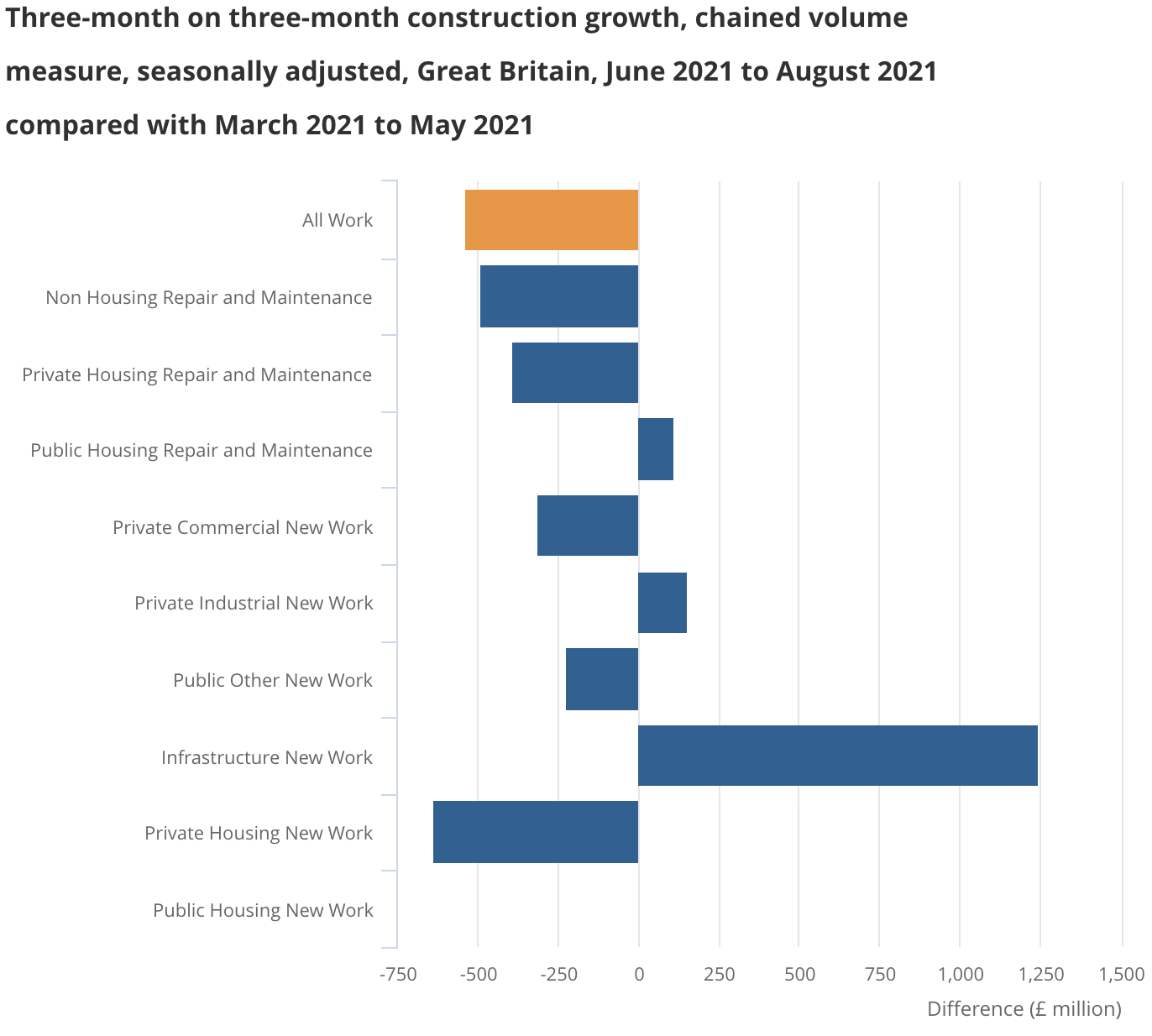Construction’s ongoing supply chain issues saw output slip for the fifth-month running in August holding new work levels 3.7% below the pre-pandemic watermark in February 2020.
The small 0.2% fall in August was down to contraction of the refurbishment and maintenance sector with new work remaining flat at the same level as July.
Government economists at the ONS said anecdotal evidence suggested supply chain issues were a key factor behind falling GDP.

Many firms said that order books were healthy but the availability of products was impacting on projects currently underway.

Mark Robinson, group chief executive at SCAPE, one of the UK’s leading public sector procurement authorities, said: “A decline in output highlights a telling loss of momentum across the construction industry, as energy costs, labour shortages and fast-rising material prices continue to paint a concerning picture heading into winter.
“With attention turning to this month’s Budget and Spending Review, the industry will be considering how best to mitigate these challenges when it is handed the baton to deliver more of the community-focused regeneration needed to deliver on the government’s ‘Levelling-Up’ ambitions.”

Mark Markey, Managing Director of civils contractor Akela Group, said: “It is disappointing that the monthly output has fallen, however this is not reflective of what we are experiencing at Akela Group.
“Instead, we are seeing growing levels of demand for a wide range of ground engineering and civil engineering services, and in fact this appetite has been a key driver in our recent expansion into the English market.

“Our new North of England hub in Leeds is well placed to meet this growing demand, especially in the house building sector.”
According to the three-month trend figures infrastructure, industrial and public housing repair and maintenance were the three main sectors to see continied growth.

Latest figures for building materials for all work in August increased by 2.8% compared with July and 23.5% compared with a year ago.
Specific construction materials with the greatest annual price increase in August were imported plywood (78.4%), fabricated structural steel (74.8%), and imported sawn or planed wood (74.0%).


Did you miss our previous article…
https://www.thegraduatemag.com/?p=792









